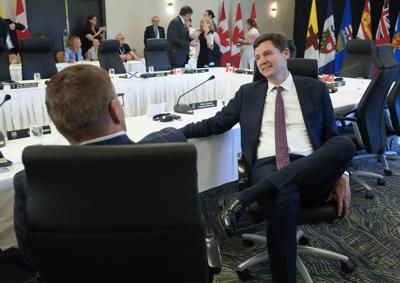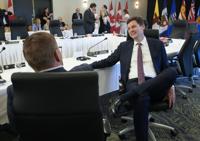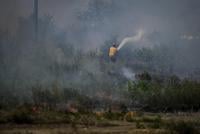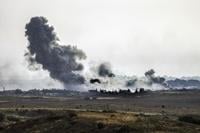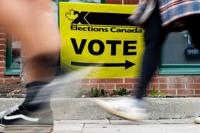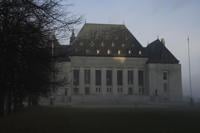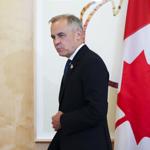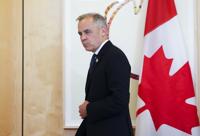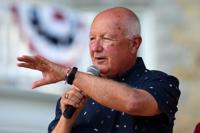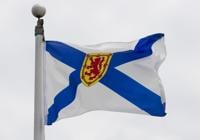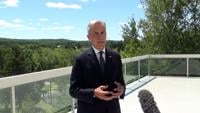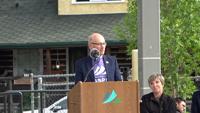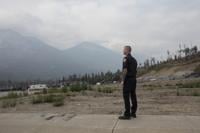Most Canadians would be "proud" to be considered mean and "nasty" for standing up for their sovereignty and economy in the face of threats from U.S. President Donald Trump's administration, British Columbia Premier David Eby said Tuesday.
But he said Americans are friends, colleagues and family members, and B.C. has worked in close partnership with states in the U.S. Pacific Northwest for many years, spurring economic growth and other benefits on both sides of the border.
Eby's remarks at a premiers' gathering in Huntsville, Ont., came the day after the U.S. Ambassador to Canada said bans on American alcohol and Canadians avoiding U.S. travel are among the reasons Trump thinks they are "nasty" to deal with.
Pete Hoekstra told the audience at the annual Pacific Northwest Economic Region Foundation summit in Bellevue, Wash., on Monday that such steps "don't send positive signals" about Canada treating the United States well.
Eby said cross-border co-operation in the region is an example of why Canadians "have no interest in being mean and nasty" and instead want to work together with Americans.
Hoekstra said it was "Canadians' business" if they want to stay home.
"I don't like it, but if that's what they want to do, it's fine. They want to ban American alcohol. That's fine," the ambassador told the conference crowd.
"There are reasons why the president and some of his team referred to Canada as being mean and nasty to deal with, OK, because of some of those steps."
B.C. is among the provinces that banned the sale of U.S. alcohol from government-run stores after Trump placed steep tariffs on goods from Canada.
A statement from Eby on Monday said the U.S. ambassador's remarks showed Canadians' efforts to stand up to Trump are "having an impact," and he encouraged people to "keep it up."
Statistics Canada figures show the number of Canadians returning home by car from south of the border fell to just over 33 per cent in June compared with the same month last year, marking the sixth consecutive month of year-over-year declines.Â
Return trips by air fell to just over 22 per cent year-over-year.
The number of Americans arriving in Canada by air decreased 0.7 per cent in June compared with the same time last year, while arrivals by car dropped 10.4 per cent.
Wedad Bishara with Marlin Travel in Vancouver said U.S.-bound travellers make up just five to 10 per cent of her business, but she has noticed a shift since last November, when Trump announced plans to slap steep tariffs on Canadian goods.
Some of her clients have indicated they would rather not travel south of the border, while others have continued to spend summers at time-share properties in Arizona and California, Bishara said in an interview on Tuesday.
Overall, though, people are interested in travelling to Eastern Canada "more than any other year before," Bishara said, adding she has worked in the Canadian market for more than three decades.
"So, there are more trips that we design for Newfoundland and New Brunswick and all the East Coast."
Bishara said the Maritimes have a "richness of beauty" and her clients have returned home happy with their experiences.
"There is interest in discovering Canada than we used to have in the past."
This report by °µÍø½ûÇø was first published July 22, 2025.

